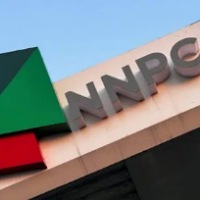Gas
Putin’s Plan for Second China Gas Pipe Will Depend on Price

Russia’s plan to build a second gas pipeline to China would cement President Vladimir Putin’s policy of tilting energy exports toward Asia. Fulfilling his goal will probably come at a price.
The pipeline from western Siberia to China has long been a Russian aim for two reasons — it’s a relatively short distance from the fields to China’s border and the same deposits also serve European customers, allowing state gas company OAO Gazprom (GAZP) to switch supplies between the two markets.
China’s been less keen. The western route delivers gas to the country’s arid west, thousands of miles from industrial heartlands on the coast. That’s why the two countries agreed to a pipeline from eastern Siberia earlier this year with less ground to cover on the Chinese side of the border.
To get a final deal for the second route, Russia will have to offer a very attractive price compared with existing exports contracts, said Alexander Kornilov, an Alfa Bank energy analyst in Moscow.
“The new deal is less attractive to China, Gazprom might need to agree on a serious discount to get the contract,” Kornilov said yesterday in an interview, adding he was skeptical of Gazprom’s statement that a binding contract could be reached within a year.
The preliminary agreement to build the second Russia-China link was announced by Putin and President Xi Jinping at an economic summit in Beijing two days ago. The pipeline would deliver as much as 30 billion cubic meters of gas a year for 30 years, adding to the 38 billion agreed in the first supply contract. That would see China overtake Germany as Russia’s largest gas customer.
Difficult Element
The framework deal between Gazprom and China National Petroleum Corp., one of 17 struck during Putin’s summit with Xi, didn’t include any price agreement. As negotiators who spent a decade trying to agree on the first contract can testify that’s the most difficult element of any deal.
The base price in the contract signed earlier this year is about $360 per 1,000 cubic meters (about $10 a million British thermal units), two Russian officials said in July. While precise payments will vary to reflect changes in global oil prices, that’s near the average $366 per 1,000 cubic meters that Gazprom charged Germany last year, which pays one of the lowest prices in Europe.
Gazprom Chief Executive Officer Alexey Miller told reporters after the signing that a binding contract would be completed next year. Deliveries would start four to six years after a final deal.
Optimistic Timetable
For the second contract, China would be interested in getting a 20 percent discount to the current European price, or about $8 per million Btu, said Gordon Kwan, a Hong Kong-based analyst at Nomura Holdings Inc. Chances for the new deal by the middle of the next year are high, Kwan said today by e-mail.
“Of course much remains to be decided, but if the Chinese have signed up to at least the logic of a potential pipeline from Western Siberia, that’s a major step forward for the Russian side,” Jonathan Stern, a senior research fellow at the Oxford Institute for Energy Studies, said by e-mail.
Still, that timetable is optimistic given the history of the first pipeline project, said Valery Nesterov, an analyst at Sberbank Investment Research in Moscow. This week’s announcement should be seen in the context of Russia’s difficult relationship with Europe because of the Ukraine crisis, he said.
“It’s more a PR action now, more a war of nerves” with Europe and the U.S., Nesterov said.
Price Competition
Another complication is an existing pipeline linking China with Turkmenistan. Under agreements to expand that link, by 2020 China will import 65 billion cubic meters from the former Soviet republic, which has become a competitor for Russia in Asian energy markets.
It’s not clear that China needs all that Turkmen gas as well as a second pipeline from Russia and liquefied natural gas imports contracted from Australia and elsewhere.
“There is a general view out there that China is going to underwrite all these projects, that Chinese demand is insatiable,” Adrian Wood, a Sydney-based analyst at Macquarie Group Ltd., said yesterday. “We’ve never shared that view.”
A new 2,600-kilometer (1,615-mile) gas link from West Siberia to the Chinese border could cost about $14 billion, Miller said in 2010 after Gazprom and CNPC signed a similar agreement on gas supplies, also planning to close the deal in a year.
Stretching Gazprom
Even if the second Russia-China route goes ahead now, building two major pipelines to the Asian neighbor while trying to complete the South Stream link from Russia to Europe could stretch Gazprom’s financial and technical capabilities.
All three projects would cost Gazprom about $90 billion, Alpha’s Kornilov estimates. That’s one reason Russia had sought a $25 billion pre-payment from CNPC to help pay for the first pipeline. Because China tried to link that to a gas-price discount it’s no longer on the table, Miller said.
By giving up upfront payments from China to protect its pricing power, Gazprom will be forced to prioritize projects with the quickest return, Russia’s Otkritie Bank (NMOS) wrote in an e-mailed note.
Breaking News
NNPC JV Unveils New Crude Oil Grade ‘Nembe’, Commences Exports With 1,900 Barrels

Precious ADELOLA
The NNPC/Aiteo Joint venture has announced the introduction of Nembe Crude Oil Grade, a new crude oil grade into the international crude oil market.
The announcement of the Nembe Crude Oil Blend, produced by Aiteo, the Operator of the NNPC/Aiteo Oil Mining Lease (OML) 29 Joint Venture (JV), was made at the ongoing Argus European Crude Conference in London, on Tuesday.
OML 29, an asset located onshore Nigeria, is operated by Aiteo Eastern Exploration & Production Ltd, Africa’s leading indigenous hydrocarbon producer, following a historic acquisition from Shell in 2014.
The Nembe Crude was previously blended with the popular Bonny Light grade and exported via the Bonny Oil & Gas Terminal.
The unique selling point of the Nembe Crude Oil grade with an API gravity was highlighted by both the Aiteo E & P and NNPC Limited Leadership at the Argus Conference in London.
The Nembe Crude Oil grade also has a low sulphur content and low carbon footprint due to flare gas elimination, fitting perfectly into the required spec of major buyers in Europe.
Two cargoes of 950,000 barrels each of the Nembe Crude Oil grade have since been exported to France and the Netherlands. With its attractive Assay of API 29 and low sulphur content, the Nembe Crude Oil grade commands a premium to the global Brent benchmark.
With the NNPC-Aiteo OML 29 JV back on-stream, Nigeria now boasts of an additional crude oil export of 2 Cargoes at 950,000 barrels each per month and 1.2 Bcf of export gas monthly.
This remarkable achievement signals the commencement of activities at Nigeria’s newest crude oil terminal, the Nembe Crude Oil Export Terminal (NCOET), which was licensed in line with the extant laws and Crude Oil Terminal establishment regulations.
The terminal was conceived as a Floating Storage and Offloading Vessel (FSO) with a storage capacity of two (2) Million Barrels and the ability to offload crude oil to any export tanker from AFRAMAX to Very Large Crude Carriers (VLCC).
It has a loading capacity of 25,000 barrels per hour and will be exporting over 3.6 million barrels of Crude oil monthly at full scale of operation.
Currently, hydrocarbon production from OML 29, which was hitherto constrained due to evacuation challenges owing to the security issues around the Nembe Creek Trunk Line (NCTL) corridor, has now been resolved through a collaborative and creative approach that led to the innovation of the Alternative Crude Oil Evacuation Solution.
The Argus European Crude Conference 2023 in London is a gathering of energy majors, refiners, NOCs, traders, financial institutions, and other representatives from across the global oil markets. The event also provides a critical opportunity for business leaders to connect, discuss, share and learn from one another.
Business
NNPCL, NCDMB, Oil Majors Agree Improved Efficiencies

Modupe Asudo
Major players in the oil and gas sector in Nigeria led by the Nigerian National Petroleum Company Limited (NNPCL) have covenanted to optimise operations by reducing contracting cycle to not more than 180 days.
A statement issued by the company disclosed that the Memorandum of Understanding (MoU) to this effect was endorced on Monday in Abuja at the company’s head office.
Other parties to the the contract include, the Nigerian Content Development and Monitoring Board, (NCDMB) and international oil companies.
Biztellers reports that an optimised contracting cycle was expected to improve the ease of doing business, reduce cost and drive efficiency, which would eventually translate to production growth, increased revenues, and ultimately improved profitability.
In addition, the MoU was expected to contribute significantly to the double-digit economic growth rate agenda of the Federal Government and generate value for all stakeholders, including investors, companies, host communities and Nigeria.
Notable elements in the framework of the MoU, going by the statement, included a reduction of the contracting cycle for open competitive tender, selective tender, and single sourcing tender to 180, 178, and 128 working days respectively.
This was in contrast with the current best effort performance of 327, 333, and 185 working days respectively.
According to Group Chief Executive Officer, NNPCL, Mele Kyari, signing the agreement portends exciting times for Nigeria’s oil and gas industry, in addition to standing as a bold testimony that the company was plunging into the future of hope, productivity and success.
Kyari, represented at the occasion by Executive Vice President, Upstream, NNPCL, Oritsemeyiwa Eyesan, pointed out that with oil and gas as the bedrock of Nigeria’s economy, there was need to get the contracting process in the Industry right so as to get the economy back on track.
In his remarks, Executive Secretary, NCDMB, Simbi Wabote, described the MoU as a way forward and a critical step towards enhancing the nation’s crude oil production.
Business
Winners emerge in NCDMB National Essay Competition, as Board harps on in-country value addition

Modupe Asudo
Winners of the 7th Nigerian Content Annual National Undergraduate Essay Competition, 2023, were unveiled on Wednesday at the Lady Daima Memorial Event Center, Yenagoa, Bayelsa State at a well-attended ceremony. It was the Grand Finale of the competition, with the top 10 finalists awarded prizes.
Overall best was Miss Iruoma Favour Lazarus, a 200-level student of the Faculty of Law, Nnamdi Azikiwe University, Awka. She received a cheque for one million naira (N1,000,000.00) and an HP laptop. The second prize went to Miss Lucy Agbalu, a 100-level student of Microbiology at the University of Calabar, who had a cheque for seven hundred thousand naira and an HP laptop, while the third prize was won by Akinduyite O. Samuel, who received five hundred thousand naira and a similar laptop.
In an address to the “Award and Prize-giving Ceremony,” the Executive Secretary, Nigerian Content Development and Monitoring Board (NCDMB), Engr. Simbi Kesiye Wabote, said the Board seeks to “inculcate local content consciousness among students of our higher institutions,” thereby creating champions of such an endeavour.
He described local content as “an existential necessity for every nation, particularly for developing nations like Nigeria.” That much was evident from the resilience of Nigeria’s oil and gas industry in the face of the COVID-19 pandemic in 2020/2021.
The NCDMB boss noted that the topic of the essay competition, which was “Nigerian Content and the Lessons from COVID-19,” was well-conceived “considering how the COVID-19 pandemic devastated our world.” He said at the height of the pandemic, “the movement of persons and goods was disrupted for several months, forcing every nation to rely on their local resources for survival.”
According to him, “The Nigerian oil and gas industry survived that period because of the huge local human and infrastructural capacities we had developed since the enactment of the Nigerian Oil and Gas Industry Content Development Act in 2010.” Efficient implementation of the Act, he pointed out, “ensured that Nigeria’s oil production continued without interruption, even when all the expatriates had left the country.”
Engr. Wabote, who was represented by the Manager, Corporate Corporations, Barr. Esueme Dan Kikile, called on policy-makers at different levels of government and in the private sector to take deliberate steps “to develop resilient and sufficient human and infrastructural capacities in key sectors of our national fabric, which can withstand any external shocks in future.”
While commending winners of the essay contest and the consultants, Mahogany Century Concepts Limited, he said the Board has sustained the competition for seven years because of the huge importance it attaches to it, and that the intention is to challenge students in tertiary institutions to sharpen their writing skills and engage youths in productive activities.
The annual essay competition is one of several initiatives of the NCDMB designed to benefit the youth segment of the Nigerian population. Others include the ‘Integrated Institutional Strengthening and Upgrade,” under which the Board has undertaken and completed massive renovation of technical workshops and installation of world-class facilities in institutions like Government Technical College, Amoli in Enugu State, Government Technical College, Abak in Akwa Ibom State, Government Technical College, Port Harcourt, and the University of Ibadan Vocational School.
The Chairman of the occasion, Professor Allen A. Agih, in his opening speech, commended the NCDMB for its remarkable contributions to capacity building in the country. He corroborated the point made by the Executive Secretary on how the resiliency of the oil and gas industry withstood the pandemic, stating, “Nigerians did not run to foreign countries when COVID-19 struck.” He was represented by Mr. Fibainonine G. Paulley.
Chief Executive Officer of Mahogany, Mr. Eyinimi Omorozi, thanked the Executive Secretary and Management of the NCDMB for the sponsorship of the essay competition and contribution to national development.












